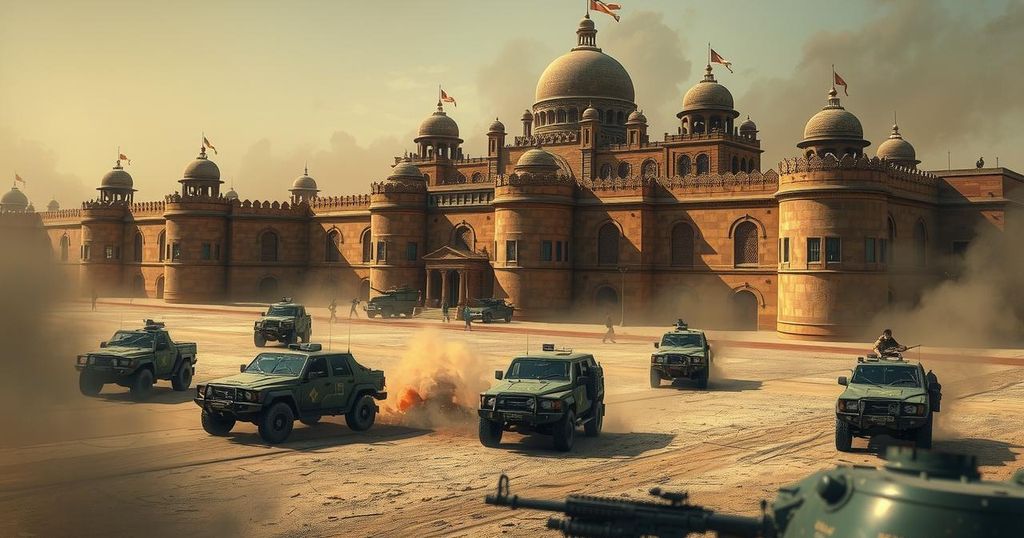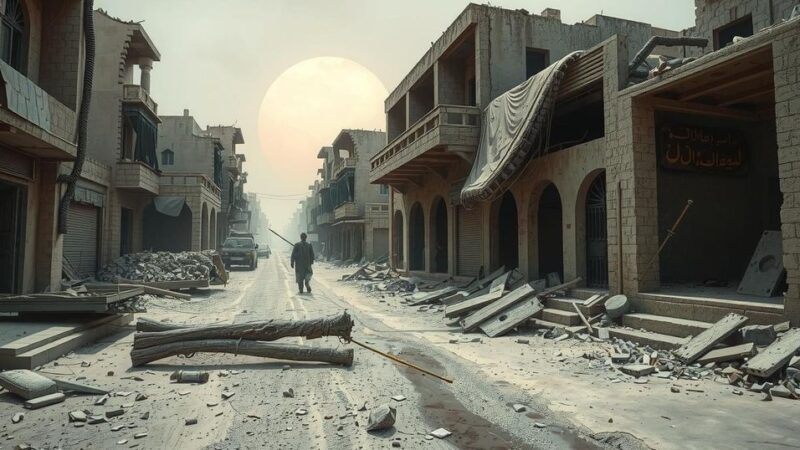Clashes in Sudan continue to escalate as army troops reinforce near the presidential palace, currently controlled by paramilitaries. The ongoing conflict has resulted in significant civilian casualties and widespread displacement, creating a humanitarian crisis affecting millions. The RSF, in control of large territories, threatens to expand the conflict, emphasizing the urgency for intervention amid deteriorating conditions in Sudan.
The ongoing clashes in Sudan have escalated significantly, particularly in Khartoum, where government army troops from the south have joined those already stationed near the presidential palace, currently under the control of paramilitary forces. This marks a critical effort by the army to regain control over the capital, amidst fierce fighting with the Rapid Support Forces (RSF), which have been in conflict since April 2023.
Military spokesperson General Nabil Abdullah announced that the Armoured Corps from the south has reinforced the General Command forces in central Khartoum after successfully taking a hospital previously held by the RSF. RSF commander Mohamed Hamdan Daglo, also known as Hemedti, issued a video address, asserting that his troops “will not leave the Republican Palace” and threatening to widen the war fronts into Blue Nile State and eastern Sudan, which could complicate efforts for administrative stability relocated to Port Sudan.
Recent shelling by RSF forces resulted in the deaths of six civilians in Omdurman, including two young children. The violence has deeply affected residential areas, leaving at least 36 civilians wounded, predominantly children. The bombardments struck individuals in their homes and children at play, as the army advanced closer to the presidential palace.
The protracted conflict has caused a catastrophic humanitarian crisis, identified as the world’s worst by the African Union. Over 12 million people have been displaced due to the fighting, with UN estimates indicating that 3.5 million individuals in Khartoum alone are now homeless. The death toll from the conflict has reached tens of thousands nationwide, leading to a severe hunger crisis across the region.
As the fighting persists, the geographic divide within Sudan has widened, with the RSF controlling almost all of Darfur while the army retains authority over the north and eastern areas of the country. The military has exhibited recent advancements in Khartoum, anticipating a potential reclamation of the capital, despite the RSF’s establishment of a parallel government.
In the North Kordofan state, further violence has ensued, with additional civilian casualties reported due to RSF shelling. The violence continues to escalate in surrounding areas, signifying a precarious state of affairs for Sudan as the war rages on, adding to the country’s mounting humanitarian challenges.
The clashes in Sudan illustrate a dire humanitarian crisis as the government’s forces and paramilitaries battle for control, especially within the capital, Khartoum. With substantial civilian casualties and widespread displacements, the conflict represents a critical situation affecting millions. The escalating violence and geographic division emphasize the urgent need for international attention and intervention to address both the humanitarian and security challenges arising from this unsettling conflict.
Original Source: www.rfi.fr






